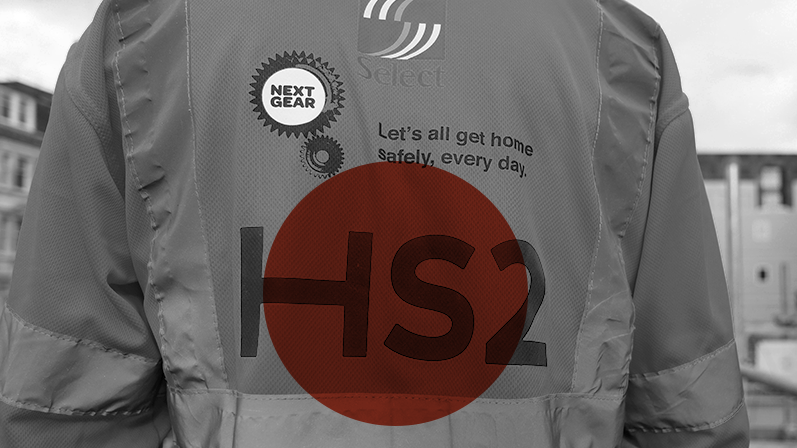Have you met anyone who seriously believes that London’s new Elizabeth Line is a bad idea? It already carries more than half a million passengers a day, transforming central London’s connectivity right out to Slough, Maidenhead and Reading to the west and the heart of Essex to the east. It is green, clean, fast and convenient, enlarging and enriching the whole London conurbation.
The regret is that it took so long to be built. It was first proposed decades ago, when Paris built its similar high speed, high-capacity RER lines from the city centre out to the suburbs and beyond. But Britain’s politicians dithered. The plan for the line was twice cancelled at project stage, and even after the last Labour government and London mayor Boris Johnson finally started construction, it was beset by a decade and a half of crises as costs ballooned, deadlines were missed, governments, mayors and project managers changed, and critics said the whole thing was ridiculously grandiose and ambitious.
So it is with HS2. We are at the construction crises stage, which followed a decade of ministerial dither about whether to proceed at all, after I first set out the plan for the high-speed network from London to Birmingham, Manchester and Leeds as transport secretary in 2010.
The latest crisis—HS2 has been rated “red” by the Infrastructure and Projects Authority, a body reporting to the Cabinet Office and the Treasury—comes amid soaring cost increases and an unresolved issue of what to build at London Euston, the terminus for HS2 in the capital. The reason Euston is unresolved sums up the problem currently besetting the project: the government, particularly the Treasury, keeps changing the Euston plan, even trying to reduce the number of platforms in a bid to save costs. In March it suddenly suspended HS2 work at Euston, in an apparent bid to rein in capital spending and reduce government borrowing after Liz Truss’s “mini-budget” catastrophe last September.
So the final terminus of the new London-to-Birmingham line, the rest of which is still under construction, is in limbo, and in the initial years of operation trains from Birmingham will terminate at Old Oak Common, the London junction station (on the Elizabeth Line) that is under construction west of Paddington.
This Old Oak Common station, en route to Euston as HS2 trains enter London, was an integral part of my original plan because of the connection with the high-capacity Elizabeth Line taking passengers quickly into central London. Using it as an interim London terminus is suboptimal but serviceable. As for Euston, the HS2 station there, with however many platforms, will have to be built when the HS2 line is extended from Birmingham to Manchester in a later phase, whenever the Treasury permits that to go ahead. The extra capacity will be essential.
I set out the position in these clinical terms because, from much of the alarmist commentary this week, you would think that the whole HS2 project was in jeopardy. It is not. The first 140-mile London-to-Birmingham section is being built rapidly and will open within a few years. Thereafter the extensions to Manchester and the construction at Euston are a matter of when, not whether. I am also confident that, ultimately, the originally proposed eastern leg of HS2 from Birmingham to Leeds will be built—despite its “cancellation” two years ago in another cost-cutting episode—because it will be politically and economically unsustainable for it to take twice as long to get from London to Leeds as London to Manchester.
William Hague suggested this week that HS2’s construction and cost issues meant that the whole project was misguided. I would offer the far more obvious verdict that we should make it a national priority to develop our capacity to deliver major infrastructure projects, as has every other country—notably France, Japan, China and Spain, which long ago successfully constructed high-speed lines between their major cities, none of which would wish them unbuilt. And until we do this, we will be plagued by similar construction crises with the next generation of nuclear power stations, reservoirs and other major construction projects needed to modernise Britain and achieve net zero.
When HS2 starts operating from London to Birmingham, it will be like the opening of the Elizabeth Line. Suddenly England’s second city will be barely 50 minutes from the capital by fast, frequent and reliable trains. Manchester will be clamouring for frequent high-speed trains to reach them too, which will take just over an hour to London and 40 minutes or so to Birmingham. This HS2 “commuterbility” will transform connectivity between England’s first-, second- and third- largest cities—in the south, Midlands and the north—making them part of a single urban corridor with a hugely positive impact on their prosperity and attractiveness. England’s chronic north-south divide will reduce. Today’s construction nightmares will fade into the past.
For now we just have the nightmares. But the transformational benefits of HS2 have not diminished, and we need them as soon as possible.













